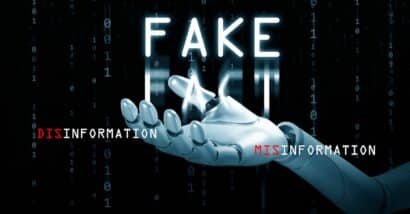 When it comes to credit card receipt information, knowing what constitutes a FACTA violation can help keep your information safe and protect you from damages.
When it comes to credit card receipt information, knowing what constitutes a FACTA violation can help keep your information safe and protect you from damages.
The Fair and Accurate Credit Transactions Act (FACTA), first passed in 2003, dictates and monitors the amount of credit card information that can be shown on credit card receipts.
FACTA rules are intended to protect consumers and their account information from potential fraud and identity theft. It is important, therefore, to recognize FACTA violations and prevent these kinds of transgressions before they affect both you and thousands of other Americans.
FACTA Violations and Rules
The most essential part of these FACTA rules is credit card receipt truncation. Truncation, or the shortening of a consumer’s credit card receipt information, must be done in a highly specific way in order to follow FACTA rules.
Because credit card receipts are printed electronically, by machine — hand-written receipts are exempt these rules — businesses need only make sure that their payment processing machines are up-to-date and set to comply with FACTA regulations.
Under FACTA rules, credit card receipts can only display a small portion of the credit card number. It is important to recognize which digits are allowed, because the rules are highly specific — only the last five digits of a credit card number may be shown. Any more than the last five digits showing is not permitted, and digits taken from anywhere else in the number is also a FACTA violation.
Many businesses choose to ensure that they follow FACTA rules by displaying only the last four digits, and censor the other digits with symbols. While the consumer’s credit card number is displayed in part, FACTA rules require that no part of the card’s expiration date be displayed at all.
Credit Card Receipt Class Action Lawsuits
The FACTA credit card receipt truncation requirement may seem like a minor rule, but it has in fact lead to substantial class action lawsuits, as well as significant awards for victims of violations.
FACTA violations mandate awards for statutory damages of up to $1,000 per violation — whether or not the consumer actually suffered any real injury, such as identity theft.
Businesses of all kinds, from very small companies to massive ones, have been targeted in FACTA class action lawsuits.
Because FACTA violations are tied to electronically printed receipts, violations of the federal law are committed via an improperly programmed machine which can print thousands of these receipts.
In a FACTA class action lawsuit where these violations are uncovered, a business may be required to award plaintiffs statutory damages of millions of dollars in total, as well as whatever punitive damages the court deems necessary.
Given that each violation can result in a substantial fine, class action lawsuits can result in damaging or even crippling consequences for businesses.
Indeed, some FACTA class action lawsuits against major retailers have reportedly reached billions of dollars in damage claims.
FACTA Class Action Lawsuits
Consumers who have proof that a business did not comply with FACTA rules are allowed under law to file credit card receipt class action lawsuits against the businesses who committed the violation.
It is simple enough to prove company noncompliance because the proof of FACTA violation is found printed clearly credit card or debit card receipts.
Check your receipts regularly to make sure that no FACTA violations have taken place. Doing this will protect you from both FACTA violations and identity theft and fraud. Consumers have the right under FACTA rules to file a class action lawsuit for FACTA violations.
Free FACTA Class Action Lawsuit Investigation
If you made one or more purchases and the retailer provided you with a receipt that contained more than the last five digits of your credit or debit card number or the expiration date, you may be eligible for a free class action lawsuit investigation and to pursue compensation for these FACTA violations.
ATTORNEY ADVERTISING
Top Class Actions is a Proud Member of the American Bar Association
LEGAL INFORMATION IS NOT LEGAL ADVICE
Top Class Actions Legal Statement
©2008 – 2026 Top Class Actions® LLC
Various Trademarks held by their respective owners
This website is not intended for viewing or usage by European Union citizens.















One thought on FACTA Violation Basics: What Consumers Need to Know